Evaluating the 7-1-7 target for epidemic detection, notification and response in Zambia: An operational research study, 2023-2025
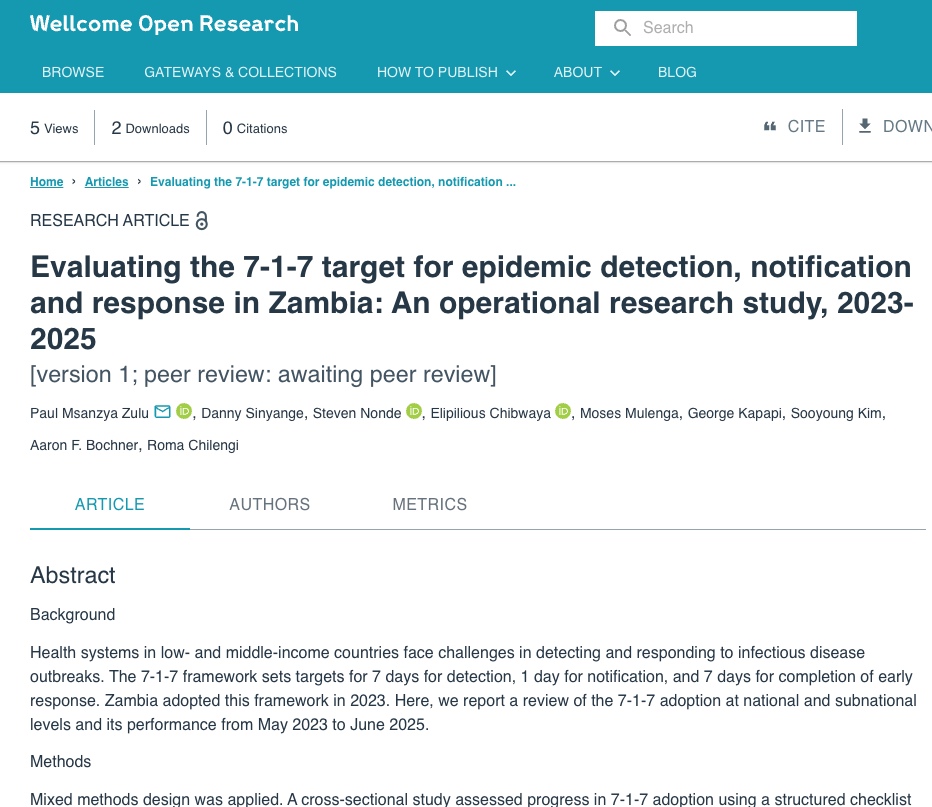
Wellcome Open Research article published on January 26, 2026. This study was conducted by 7‑1‑7 Alliance partners in Zambia and supported by the Wellcome Trust (228152/Z/23/Z).
Evaluating the 7-1-7 Outbreak Response Metric: Modelling and Implementation Insights for Ebola, Measles, and Anthrax in Central and Eastern Uganda, 2025
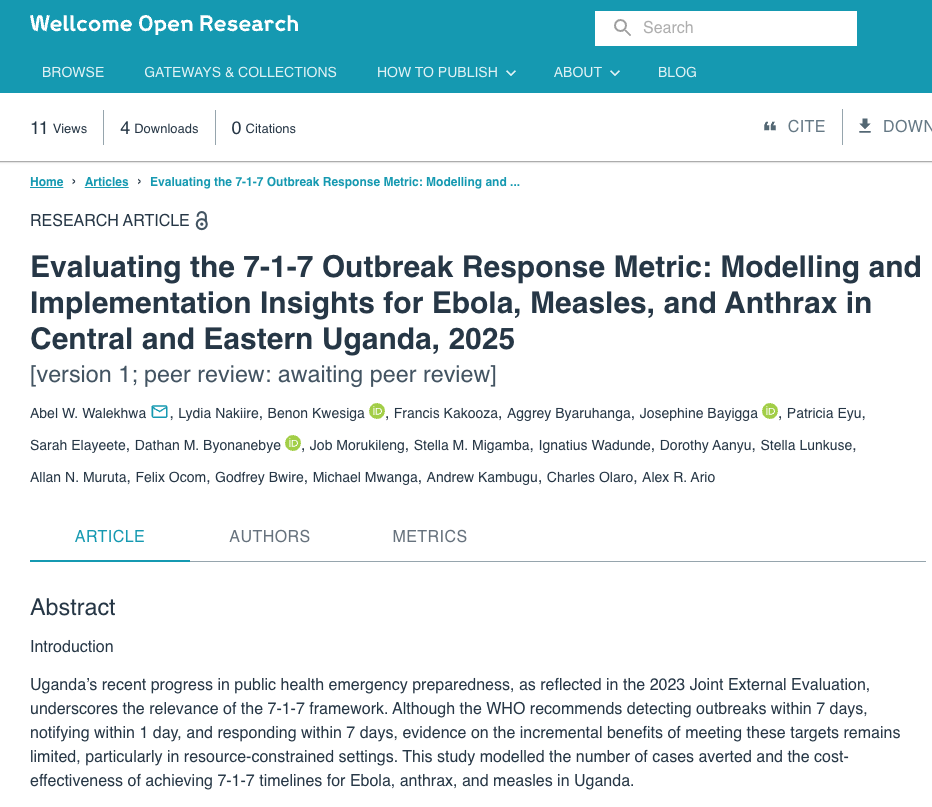
Wellcome Open Research article published on January 26, 2026. This study was conducted by 7‑1‑7 Alliance partners in Uganda and supported by the Wellcome Trust (228152/Z/23/Z).
IHR Key Obligations and Rights – Summary Table
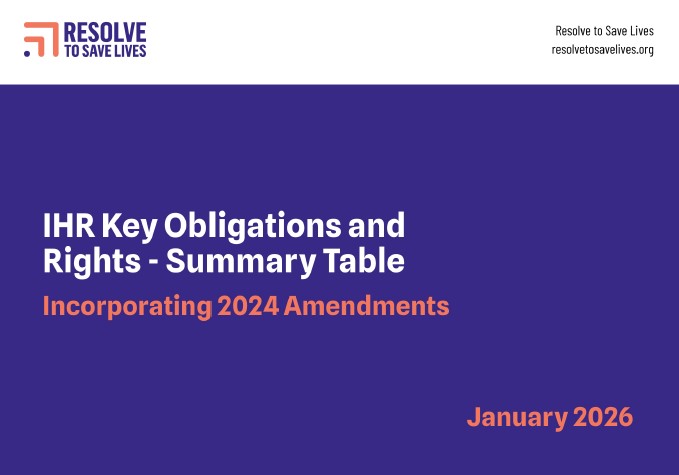
Summary table on IHR key obligations and rights for incorporating the 2024 amendments.
Taxation of foods high in fat, sugar, and sodium in India: A modelling study of health and economic impacts
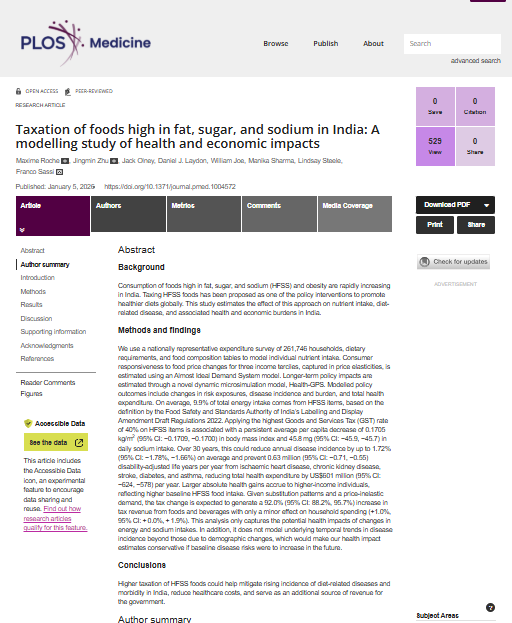
A new modelling study from Centre for Health Economics & Policy Innovation, the Institute of Economic Growth, and Resolve to Save Lives highlights how taxing foods high in fat, sugar, and salt (HFSS foods) could deliver major health and economic gains for India over the next 30 years—with minimal impact on household spending. Better health […]
IHR Legal Analysis: Standardized Checklist and Reporting Template
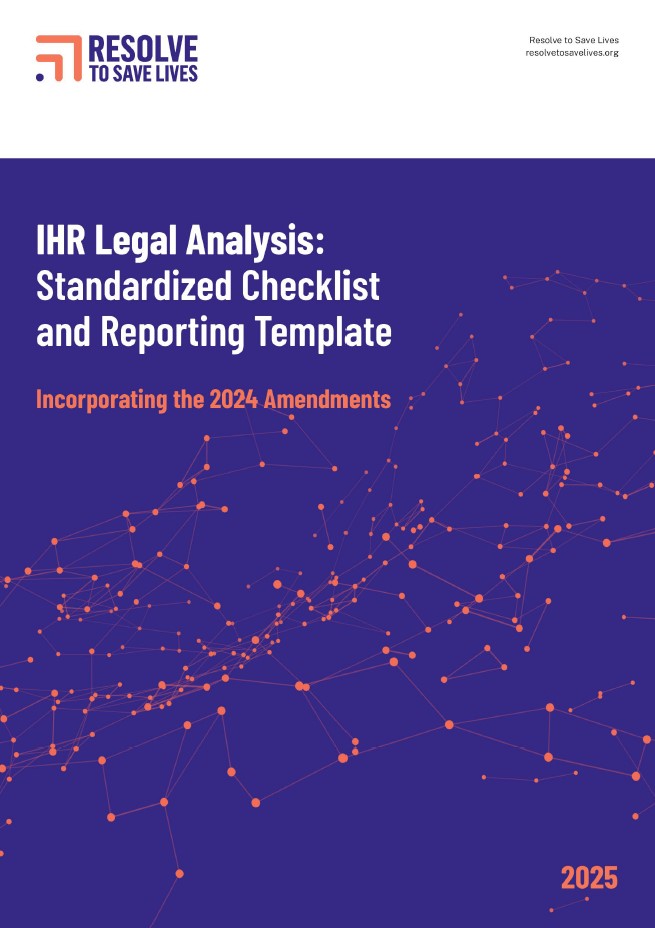
Standardized checklist and reporting template for incorporating the 2024 amendments.
Building the science behind a smarter salt
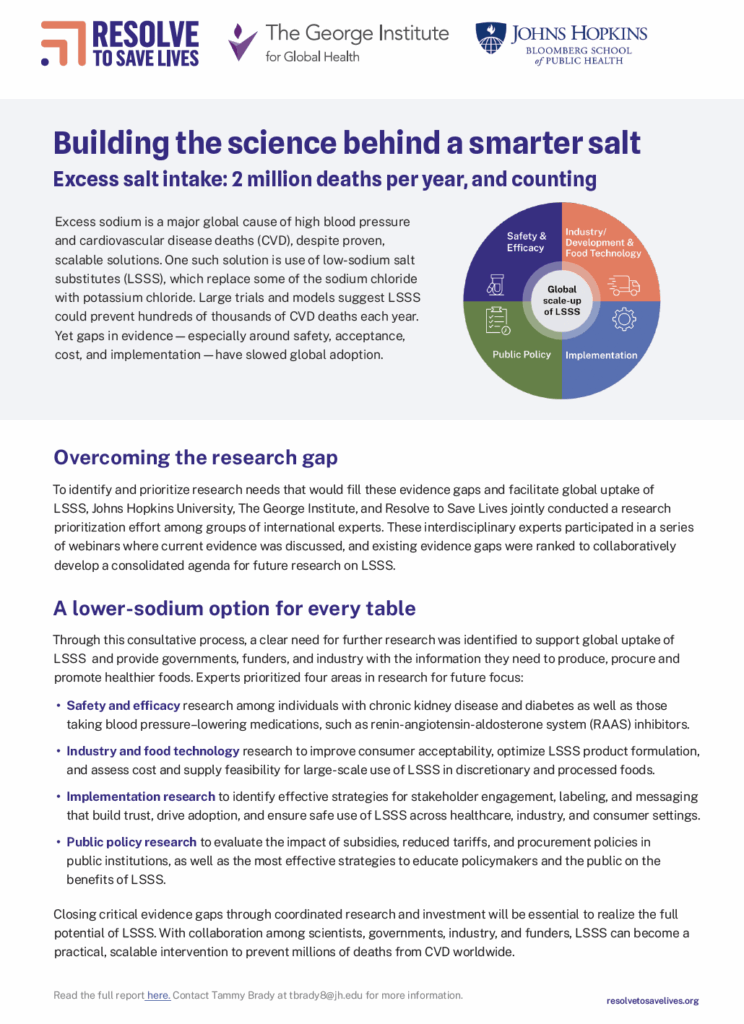
Excess sodium drives global hypertension and cardiovascular deaths, yet adoption of lower-sodium salt substitutes remains slow despite strong evidence that they could prevent hundreds of thousands of deaths annually. To pinpoint what’s holding back large-scale uptake, Johns Hopkins University, The George Institute, and Resolve to Save Lives convened international experts to identify the most urgent […]
Research prioritization to scale-up lower-sodium salts
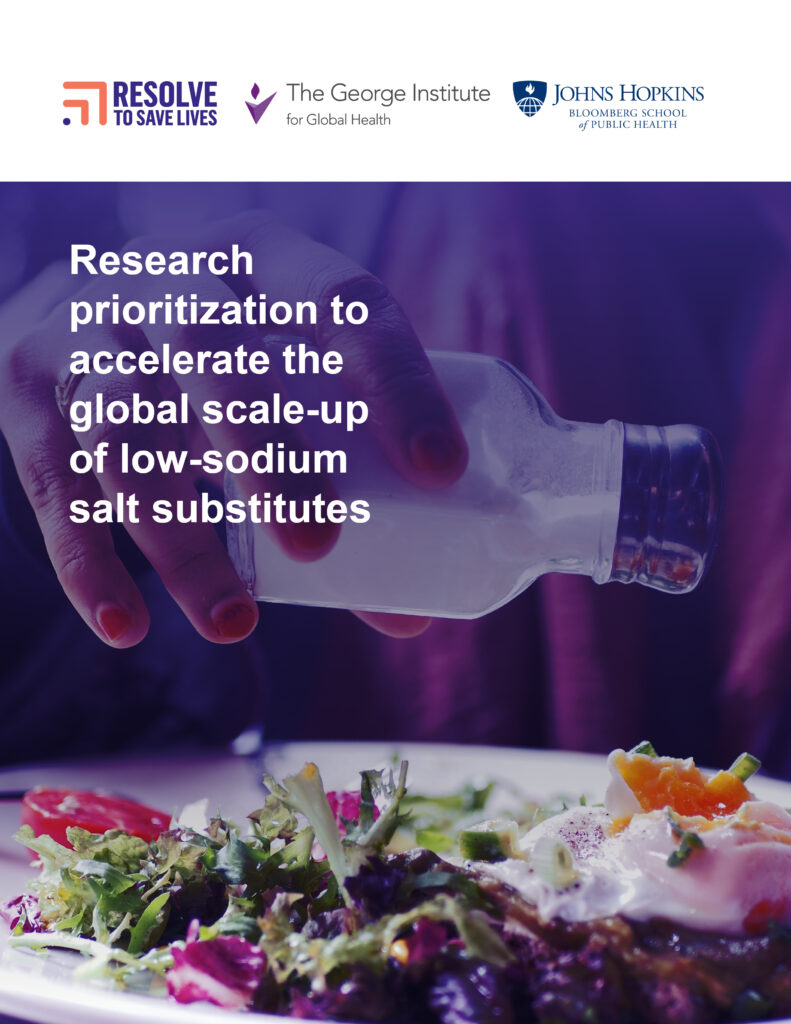
Excess sodium drives global hypertension and cardiovascular deaths, yet adoption of low-sodium salt substitutes (LSSS) remains slow despite strong evidence that they could prevent hundreds of thousands of deaths annually. To pinpoint what’s holding uptake back, Johns Hopkins University, The George Institute, and Resolve to Save Lives convened international experts to identify the most urgent […]
PAHO’s HEARTS Quality Framework for controlling high blood pressure

A new article in The Lancet Regional Health – Americas unveils the HEARTS Quality Framework, a practical blueprint to help countries dramatically reduce high blood pressure and cardiovascular disease risk through primary health care. Developed by the Pan American Health Organization, ministries of health throughout the region, and international experts and researchers, the HEARTS Quality Framework centers around the ambitious goal […]
Considerations for the establishment of national IHR authorities (NIAs)
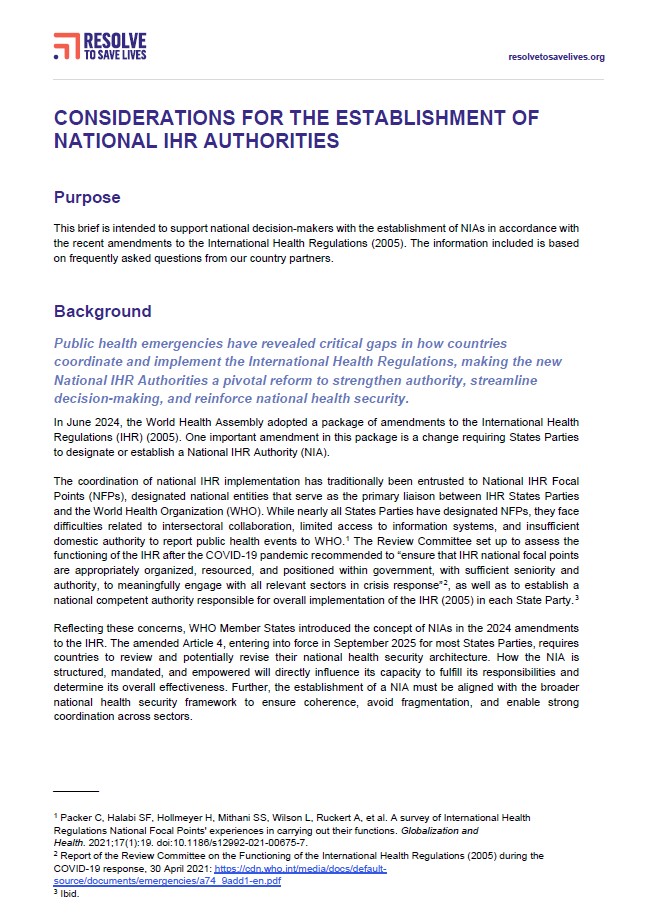
A brief to support national decision-makers with the establishment of national IHR authorities (NIAs) in accordance with the recent amendments to the International Health Regulations (2005).
Lessons learned from treating 34 million people with hypertension
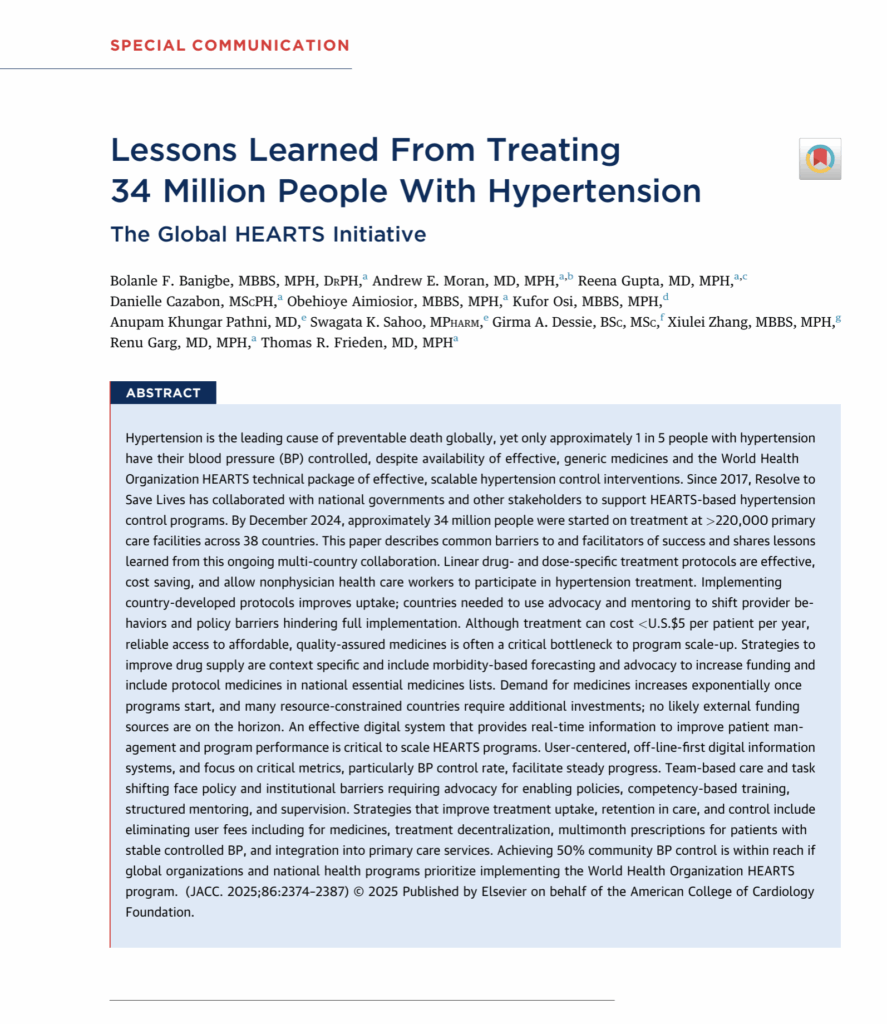
Hypertension is the leading cause of preventable death globally, yet only one in five people with high blood pressure have it under control despite availability of effective, low-cost medicines and the WHO HEARTS technical package of effective, scalable hypertension control interventions. Since 2017, Resolve to Save Lives has collaborated with national governments and other stakeholders […]
Global Development Assistance for Health Allocated to Cardiovascular Disease Control, 2015 to 2022
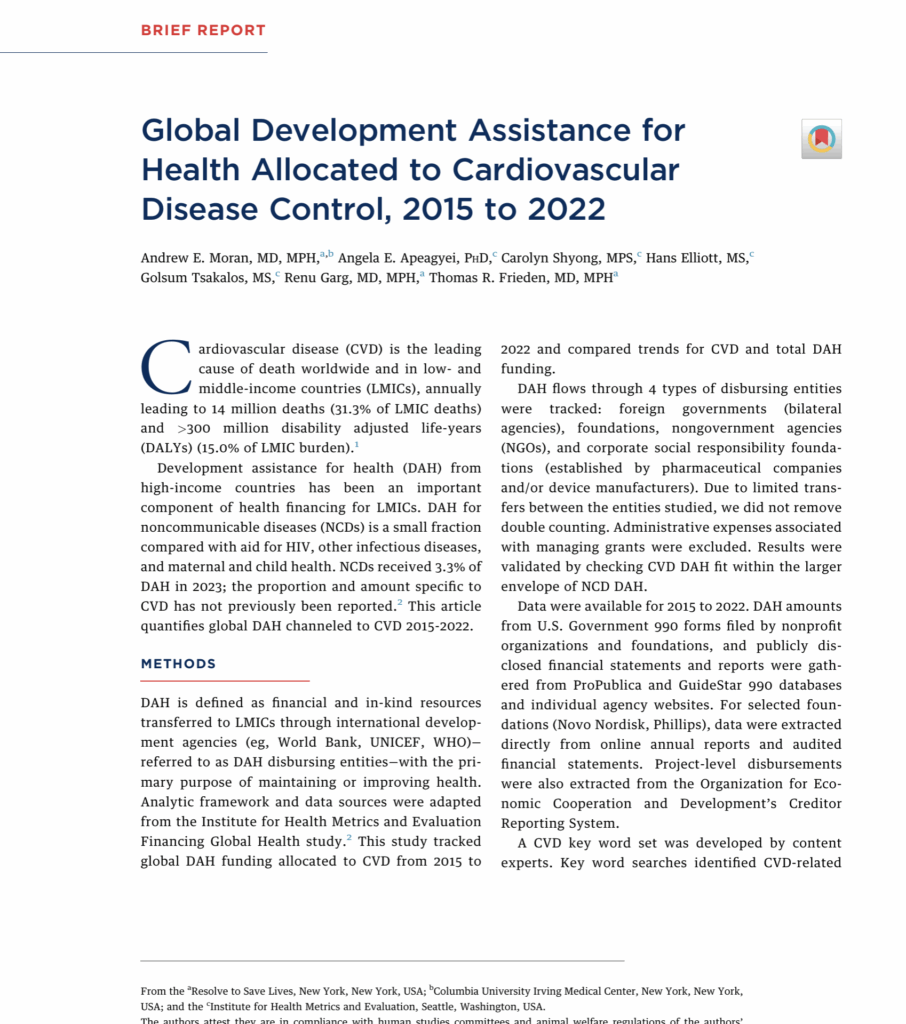
Cardiovascular disease (CVD) is the leading cause of death worldwide yet CVD prevention efforts remain starkly underfunded. A new landmark report in the Journal of the American College of Cardiology quantifies for the first time the surprising mismatch between high CVD burden and low CVD funds from high income country governments and international development agencies such […]
Association between timeliness of detection, notification and response and the magnitude, severity and duration of disease outbreaks: a retrospective review of 84 outbreaks in Uganda, 2017–2022
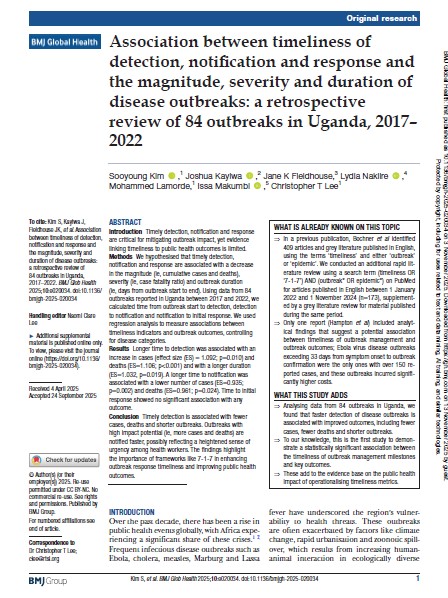
Timely detection, notification and response are critical to reducing the impact of outbreaks, yet evidence linking these factors to outcomes has been limited. In an analysis of 84 outbreaks reported in Uganda between 2017 and 2022, Resolve to Save Lives and partners found that delays in detection were strongly associated with higher numbers of cases […]
Adoption and use of the 7-1-7 timeliness metrics for detection, notification, and early response actions to public health events: an observational study in Liberia, January 2024–June 2025
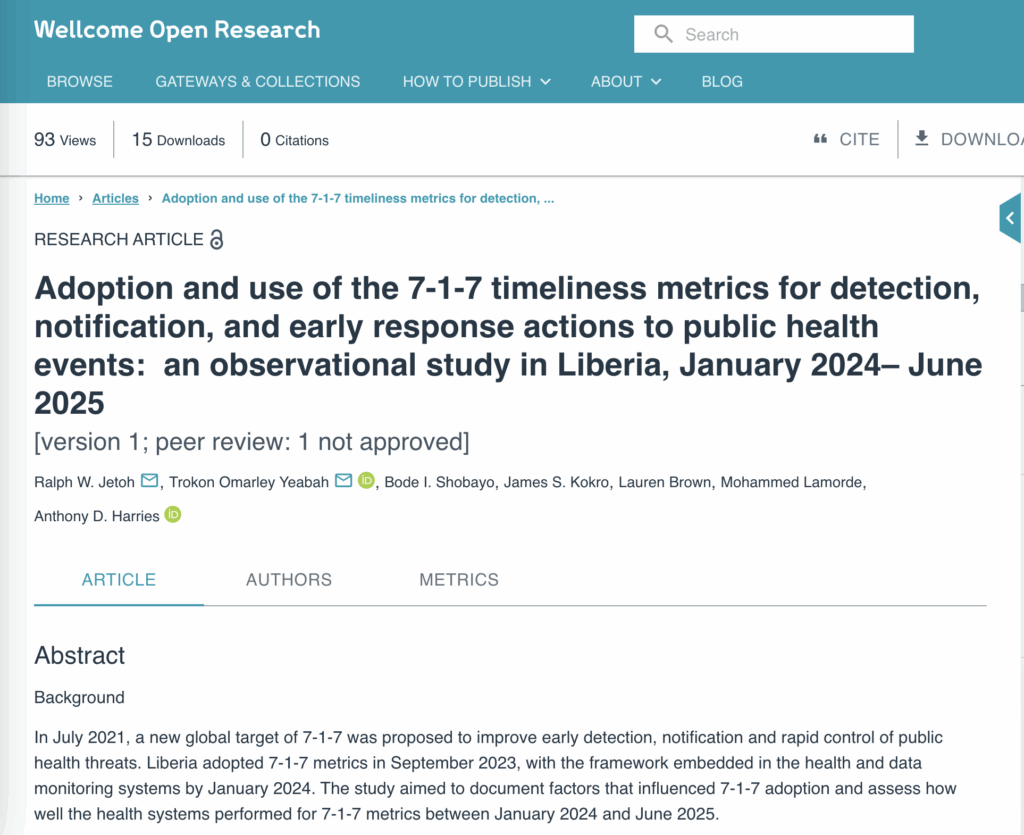
Wellcome Open Research article published on October 31, 2025. This study was conducted by 7-1-7 Alliance partners in Liberia and supported by the Wellcome Trust (228152/Z/23/Z).
Ultra-processed foods in Bangladesh are full of salt—and often not saying so
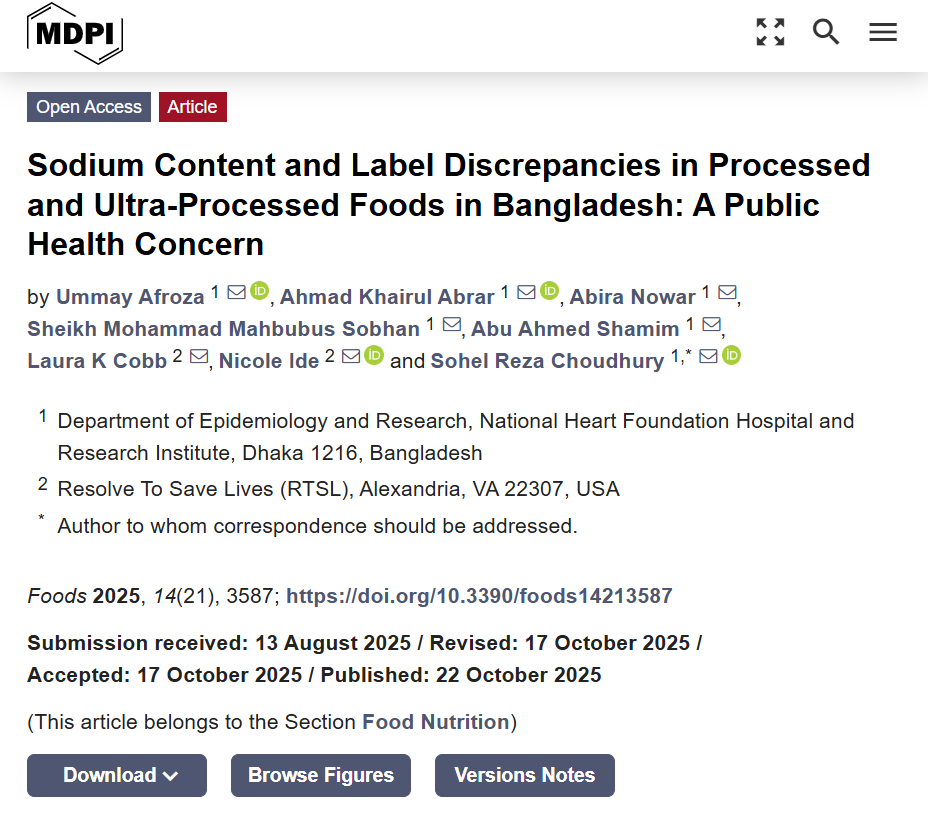
People around the world are consuming more sodium from processed and ultra-processed foods—and Bangladesh is no exception. A new country-wide cross-sectional study highlights concerning realities: 97% of participants consumed processed or ultra-processed foods in the past week Children consumed processed or ultra-processed foods approximately 21 times per week, adolescents 16 times per week, and adults […]
The Healthy Hearts program to improve primary care for hypertension
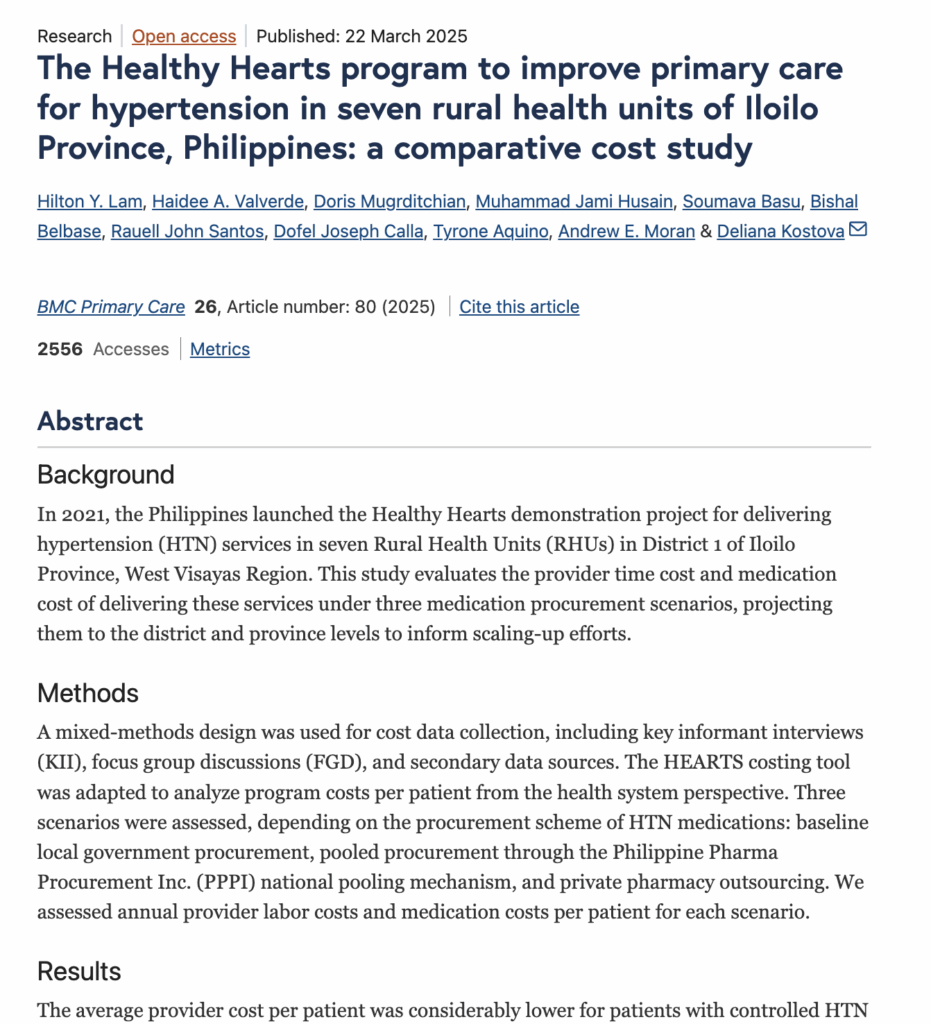
A new study co-authored by RTSL on the Philippines’ Healthy Hearts program compared three ways to supply hypertension medicines under the country’s Universal Health Care law. Researchers found that centralized national procurement would cost government payers less than one-third of the current decentralized system, while relying on private pharmacies would be more expensive. The study […]
How to increase hypertension control 6-fold through primary health care
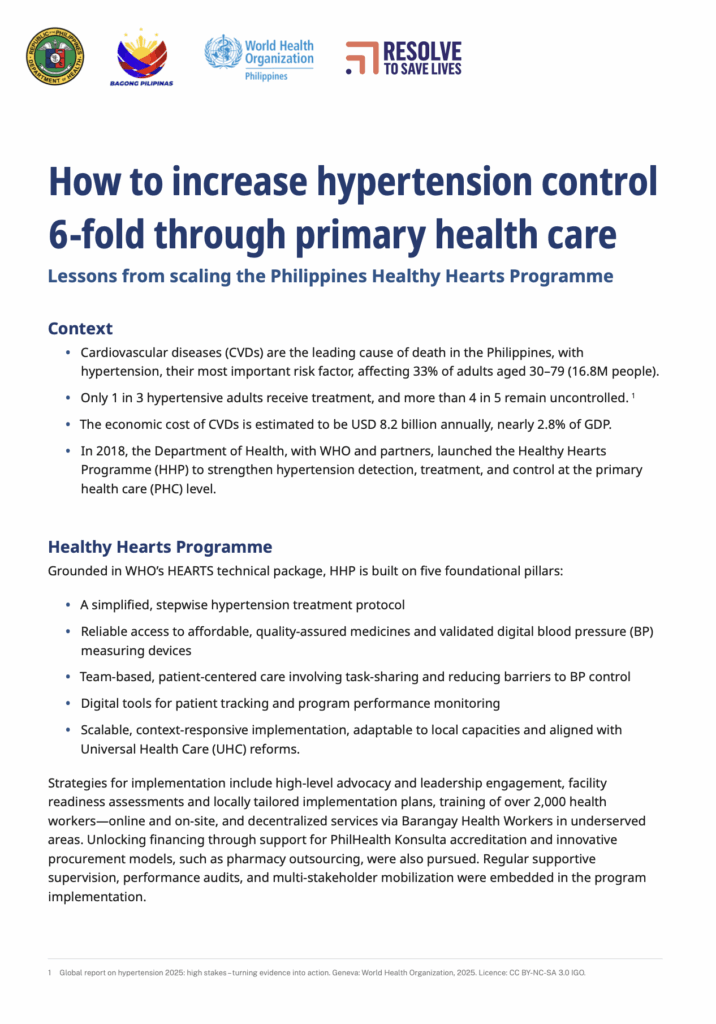
Lessons from scaling the Philippines Healthy Hearts Programme This advocacy resource from Resolve to Save Lives highlights lessons learned and key strategies for improving population-level blood pressure control in the Philippines, which are captured in an upcoming report. The key takeaway: Scaling the Healthy Hearts Programme nationally can avert about half a million premature deaths […]
Global report on hypertension 2025: High stakes—turning evidence into action
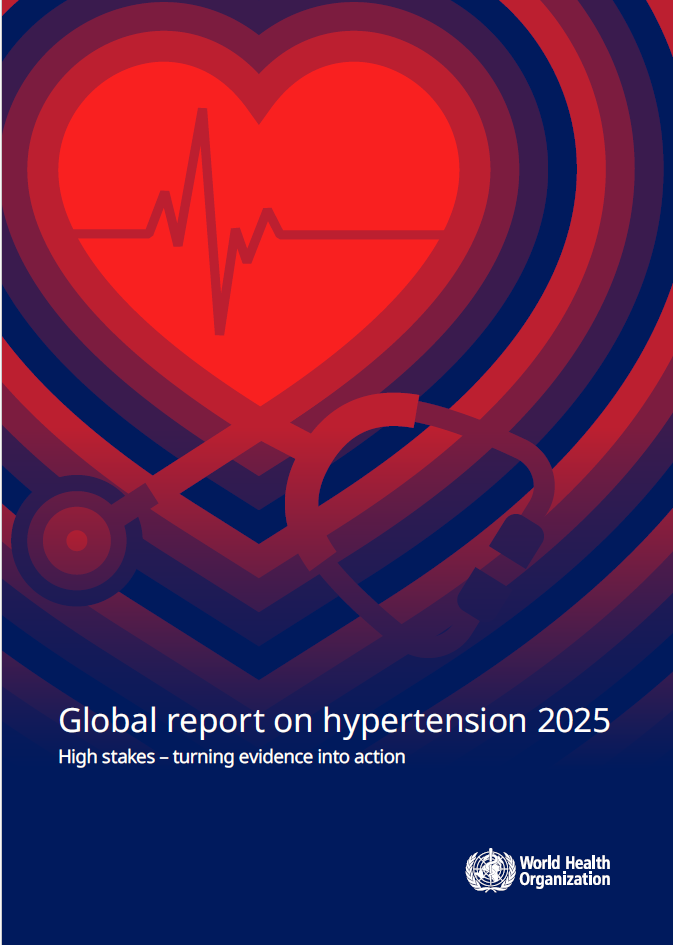
The World Health Organization’s second global hypertension report identifies access to life-saving medicines as the biggest barrier—but also the greatest opportunity—for rapid, scalable progress to get high blood pressure under control and save millions of lives.
Actionable 7‑1‑7 bottleneck insights: Timely laboratory confirmation
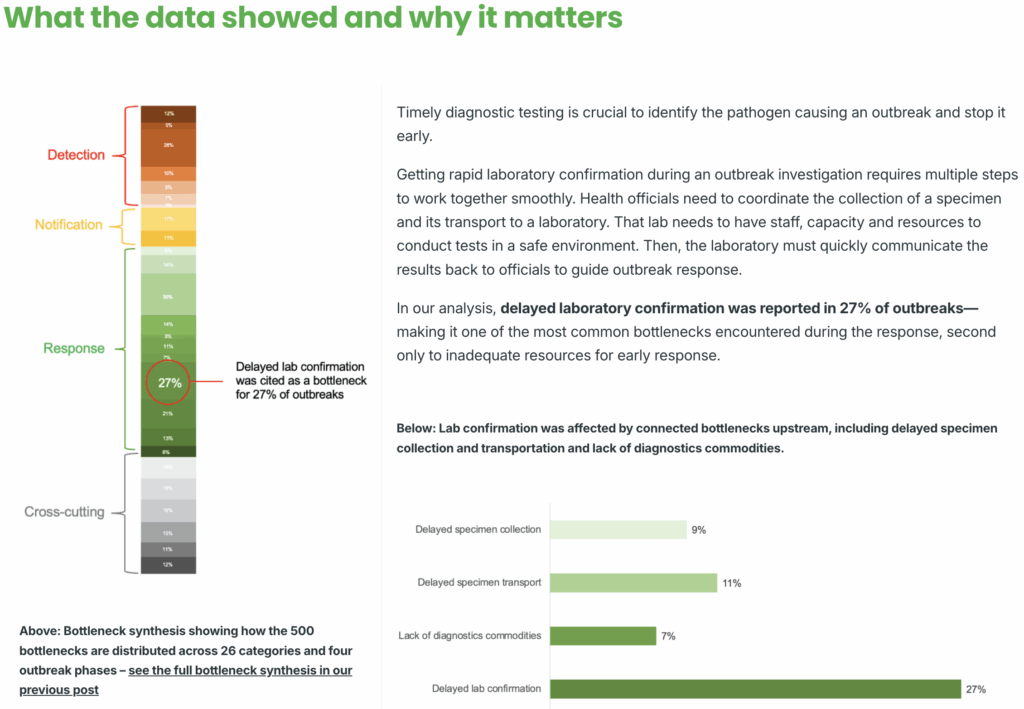
This fourth post in the 7-1-7 bottleneck insights series examines delays in laboratory confirmation—the second most common response bottleneck—and practical ways countries can accelerate diagnostics for faster outbreak control.
Progress in epidemic-ready primary health: early pilot results from four African countries (Ethiopia, Nigeria, Sierra Leone and Uganda), December 2023-October 2024
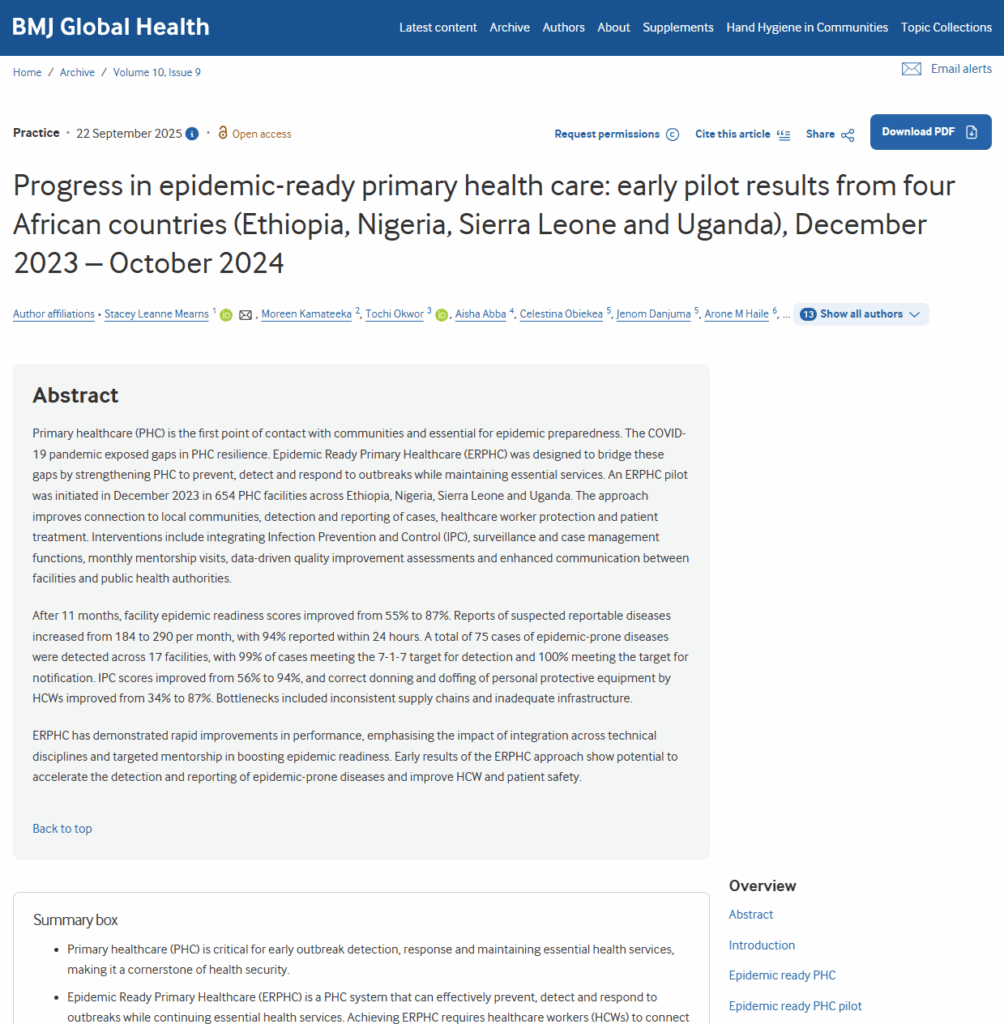
Primary health care facilities are the first point of contact when community members fall ill. They are also essential to epidemic preparedness. Despite their critical importance, many facilities lack the capacity to prevent, detect and respond to outbreaks while maintaining essential services. To address these gaps and bolster facility resilience, we launched an Epidemic Ready […]
Actionable 7‑1‑7 bottleneck insights: Overcoming low clinical suspicion in outbreak detection
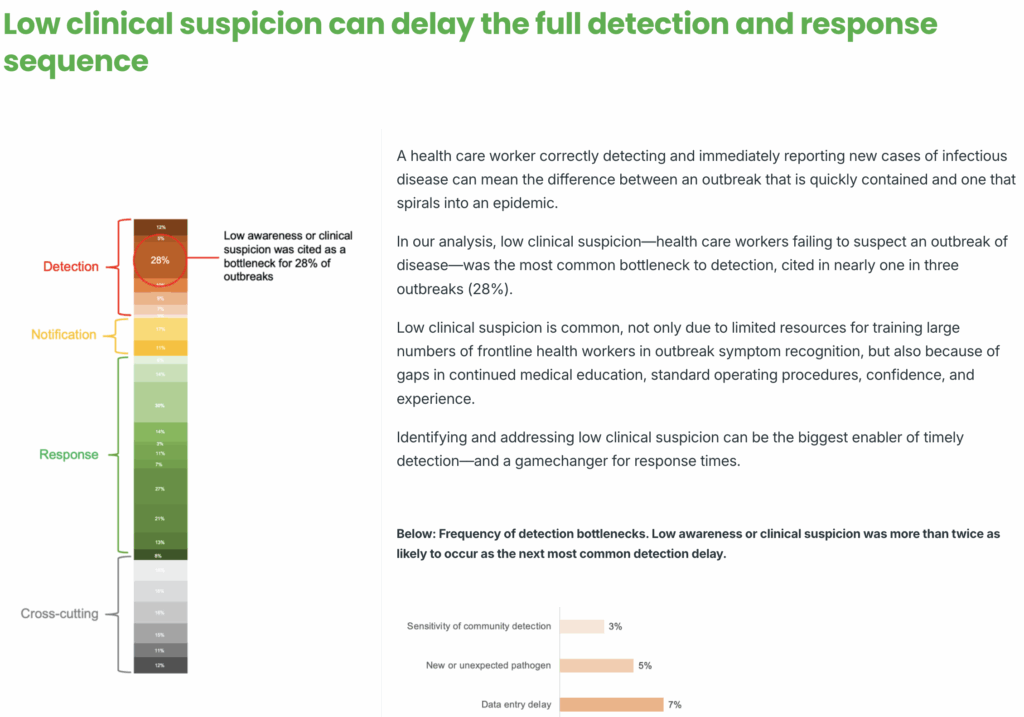
Low clinical suspicion is one of the most common barriers to early outbreak detection. The third post of the 7-1-7 Bottleneck Insights series highlights the value of bottleneck analysis – and solutions to a top barrier to outbreak detection.
Learn about 7-1-7 at your own pace with free online courses

As more countries adopt the 7-1-7 target to accelerate outbreak detection and response, training for public health officials is essential to maximize its impact. The 7-1-7 Alliance, an initiative hosted by Resolve to Save Lives, released three free, interactive online courses accessible to all. The courses equip learners to understand, use and adopt 7-1-7 through […]
Transforming the 2024 amendments to WHO’s International Health Regulations from an opportunity to a reality
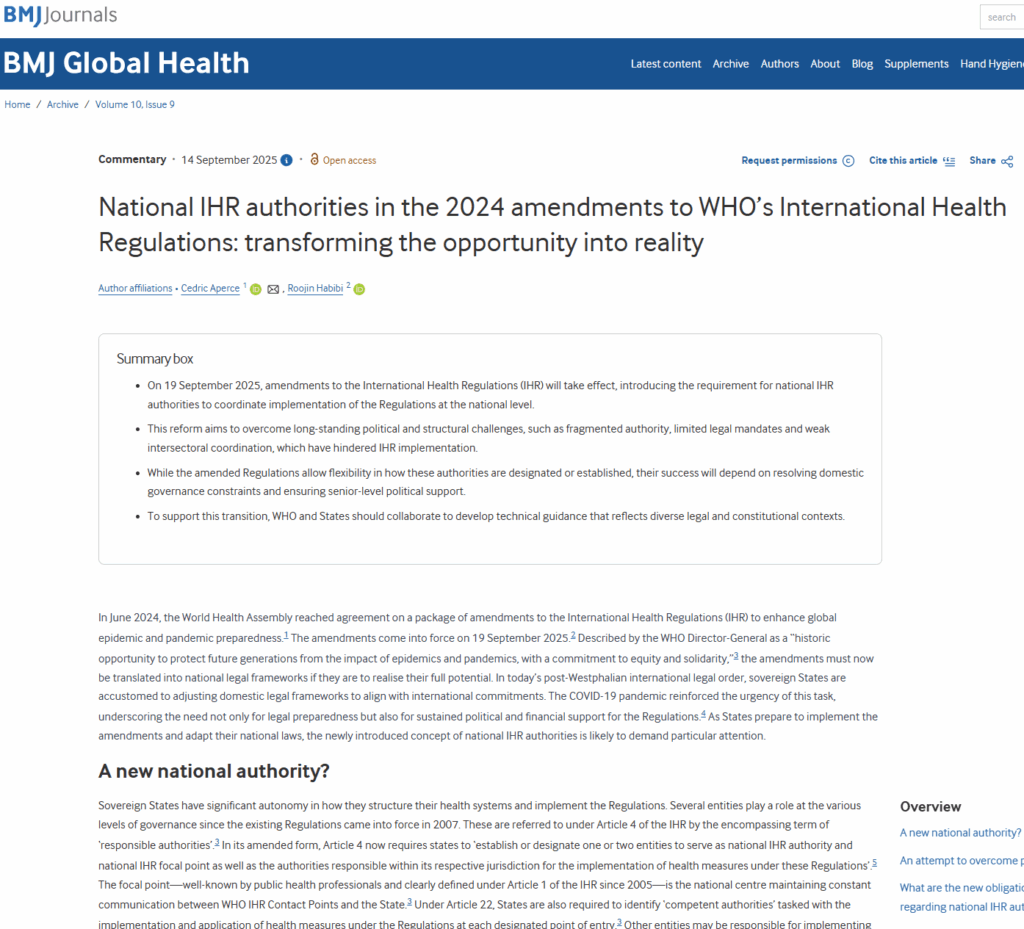
In a new article for BMJ Global Health, RTSL senior legal advisor Cédric Aperce and the University of Ottawa’s Roojin Habibi discuss new amendments to the 2005 International Health Regulations (IHR), the legally binding agreement that requires countries to detect and report global health threats to the World Health Organization. First agreed upon at the […]
Watch: “HEARTS Voices – Access to Medicines”
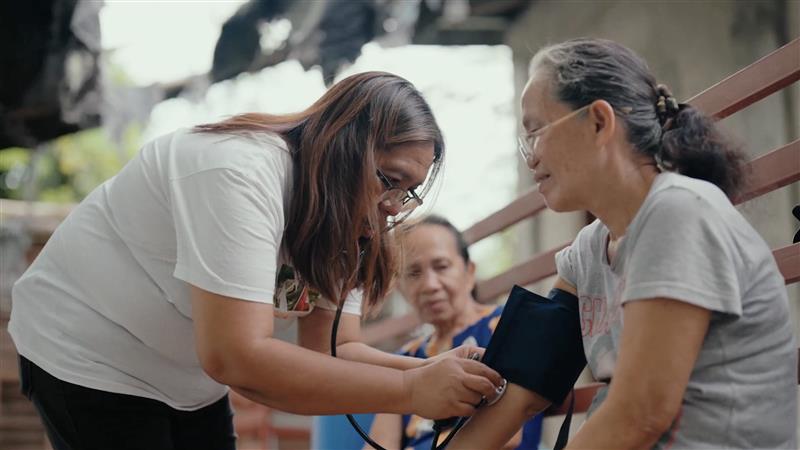
Access to affordable, life-saving blood pressure medicines is the single biggest barrier to controlling hypertension worldwide. Today, only 21% of people with high blood pressure have it under control. Closing this gap to 50% by 2030 could save 75 million lives and prevent 150 million heart attacks and strokes over the next 25 years. Our […]
Potassium-enriched salt substitutes: supporting global cardiovascular and kidney health
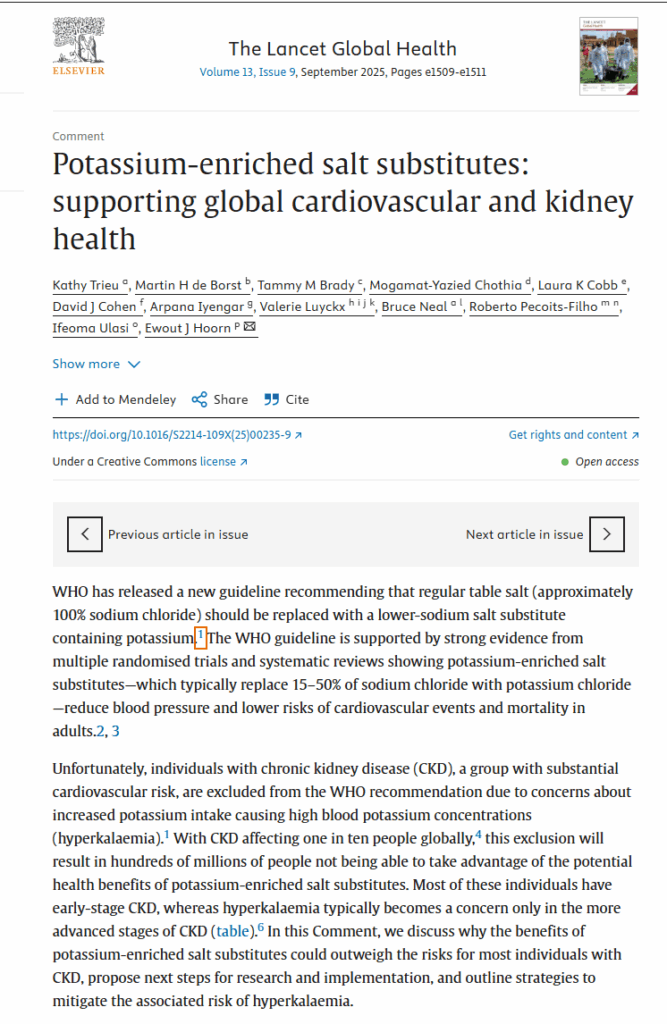
A new paper in Lancet Global Health co-written by global nephrologists and the Healthier Foods and Environments team at RTSL highlights the important role potassium-enriched, low-sodium salt alternatives can play in reducing sodium consumption and helping people living with hypertension to get their blood pressure under control. Importantly, this paper suggests that these benefits even […]
Eliminating trans fat: Only your heart will know the difference
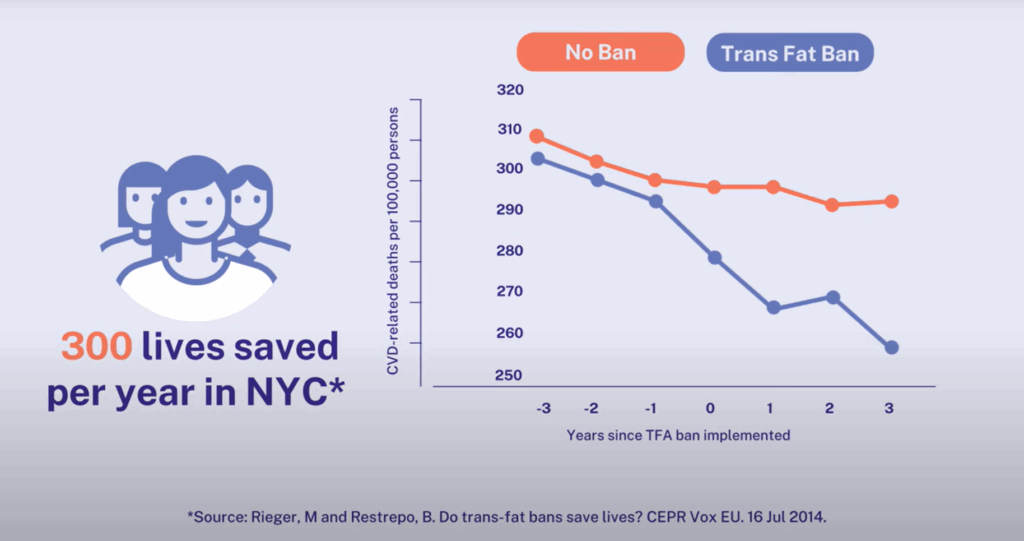
Dr. Tom Frieden explains how New York City successfully banned trans fat and became a model for eliminating this toxic food additive.
Calcium Channel Blockers for Global Hypertension Control
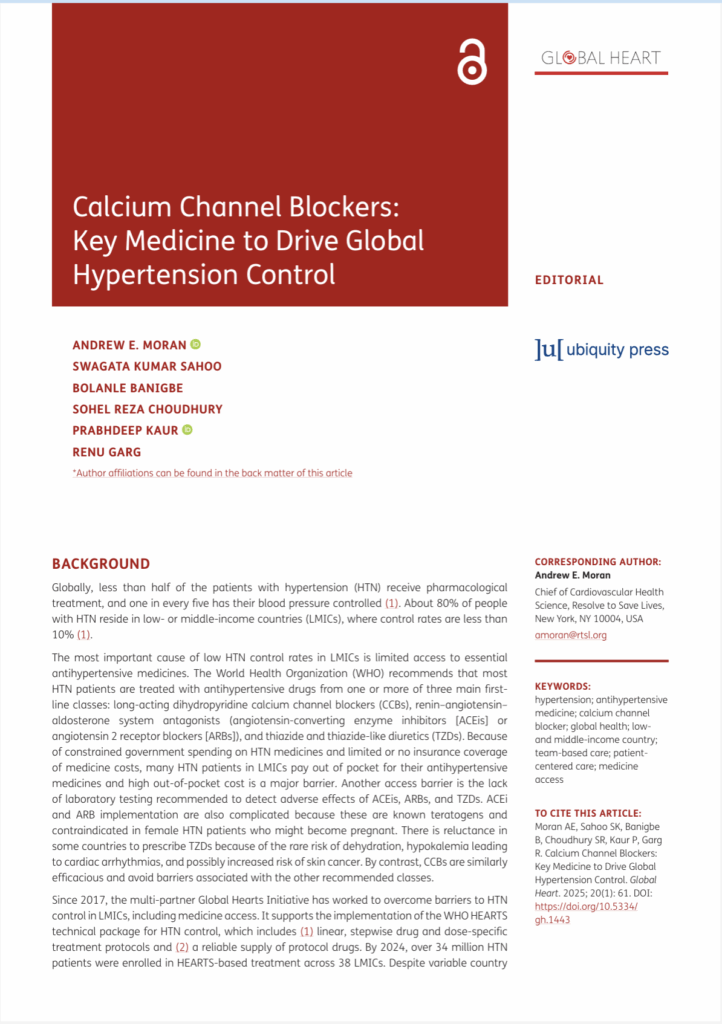
This paper by Resolve to Save Lives and colleagues highlights why calcium channel blockers are the ideal first-line hypertension medicine for countries with constrained resources. Calcium channel blockers are: Safe—they don’t require lab testing Affordable Just as clinically beneficial as other recommended hypertension medicine classes For these reasons, calcium channel blockers will be a key […]
Hypertension Prevalence and Risk Factors in Adults with HIV at ART Centers in Mumbai
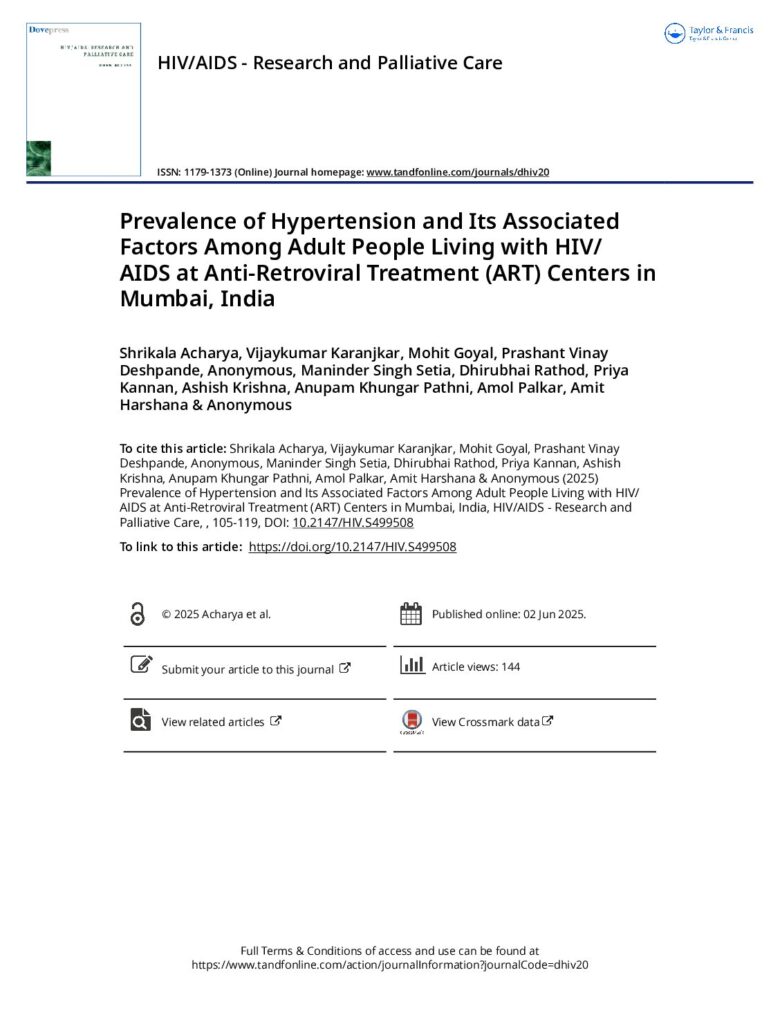
Findings show that nearly one in four people living with HIV also have hypertension. The results highlight key risk factors and reinforce the need to integrate hypertension care into routine HIV services to improve long-term health outcomes.
Watch: “One penny, one pill.” That’s all it costs to control high blood pressure.
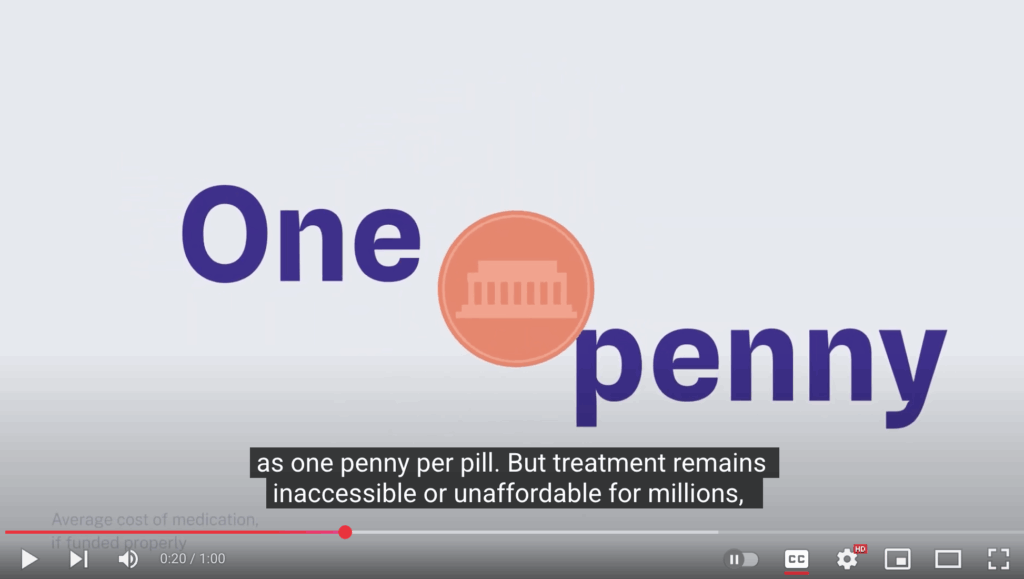
Blood pressure-lowering drugs can cost as little as one penny per pill. Governments, funders, and the private sector must prioritize improving accessibility of life-saving blood pressure-lowering medicines to increase global blood pressure control from 21% today to 50% by 2030. Doing so would help save 75 million lives and prevent 150 million heart attack and […]
Factors associated with hypertension care follow-up in the Ethiopia HEARTS program
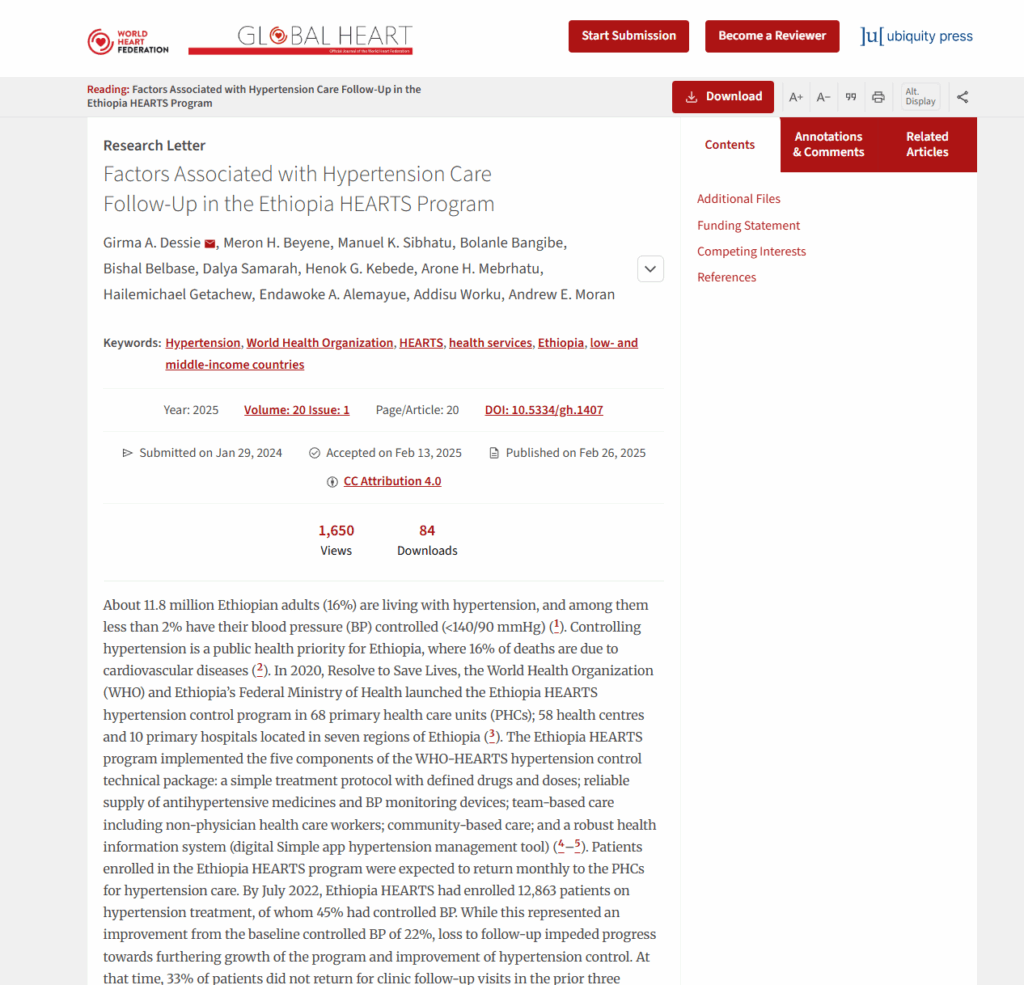
In World Heart Federation’s Global Heart, this article co-authored by Resolve to Save Lives dives into the impact of HEARTS interventions and improvements to access to medicines made in 2022 in controlling high blood pressure in Ethiopia, and provides recommendations for further progress. Through patient-centered interventions such as extending appointment intervals, prescription refills, and expanded […]
Analysis of costs in implementing the HEARTS hypertension program in Nigerian primary care
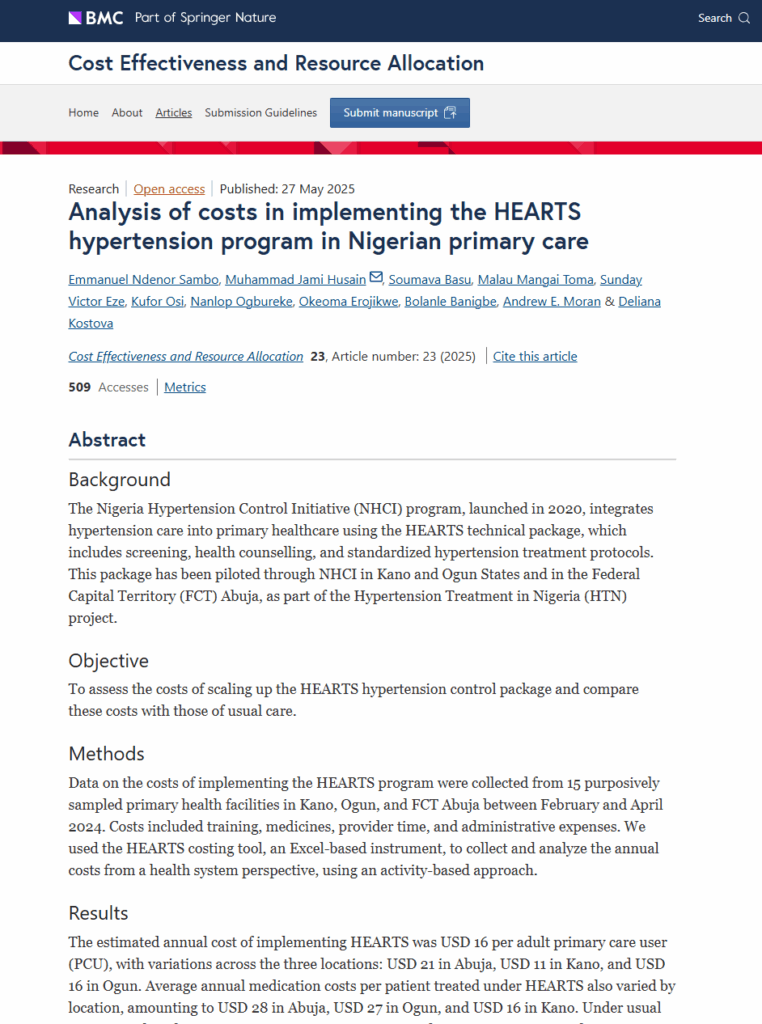
A new article co-authored by Resolve to Save Lives dives into the cost of scaling up HEARTS hypertension services in Nigeria to help prevent and control high blood pressure, and outlines the next steps to lowering the cost of HEARTS implementation. Abstract Background The Nigeria Hypertension Control Initiative (NHCI) program, launched in 2020, integrates […]